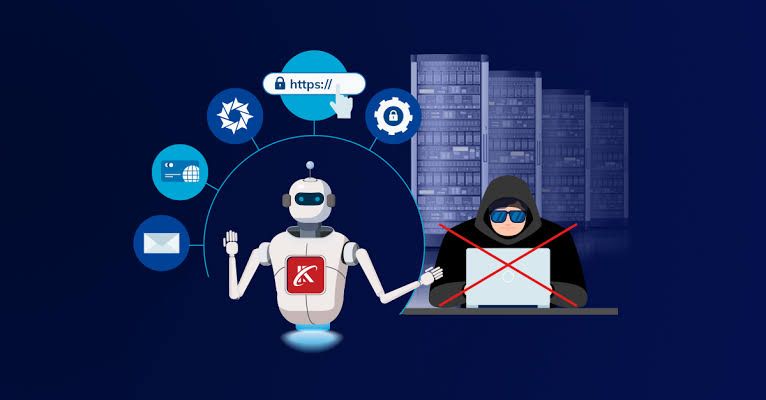
Read Dive* – Software development, fintech, and QA testing insights.
Read Dive is a technology insights platform that blends expertise in software development, fintech, and QA testing. It helps developers master frameworks, fintech professionals track disruptive innovations, and testers adopt modern QA tools. By offering tutorials, trends, and practical applications, Read Dive empowers individuals and businesses to thrive in the fast-changing digital ecosystem.**
✨ Raghav Jain

Read Dive* – Software Development, Fintech, and QA Testing Insights
In today’s fast-paced digital era, platforms that provide clear, research-driven, and practical knowledge about technology are becoming increasingly valuable. Read Dive* is one such resource that has carved a niche by offering readers insights into three critical areas of the modern tech world—software development, financial technology (fintech), and quality assurance (QA) testing. Whether you are a developer aiming to refine coding skills, a fintech enthusiast following disruptive innovations, or a QA engineer focused on building flawless products, Read Dive* acts as a one-stop hub for knowledge, best practices, and industry updates.
This article explores in depth what Read Dive* offers, how it supports professionals and learners, and why its coverage of software development, fintech, and QA testing makes it unique.
The Essence of Read Dive*
At its core, Read Dive* functions as an educational and thought-leadership platform that merges practical tutorials, analytical articles, and expert insights. Unlike platforms that focus solely on news or high-level commentary, it dives into the technical and practical aspects of technology adoption. Its readers include:
- Software developers looking for development frameworks, coding tips, and agile practices.
- Fintech entrepreneurs and professionals monitoring blockchain, digital banking, and AI-based financial tools.
- QA testers and automation engineers seeking effective testing methodologies and strategies.
The focus is on practical value—helping individuals and businesses adapt to evolving technologies.
1. Software Development Insights
a) Exploring Programming Languages and Frameworks
Read Dive* dedicates a significant portion to explaining programming languages and development frameworks. Developers can access articles on Java, Python, C#, JavaScript, Kotlin, and Swift, including comparisons of when to use one over the other. For example, an article might explore why Python dominates AI and data science, while Java remains crucial in enterprise applications.
It also keeps readers updated on frameworks like React, Angular, Vue.js for front-end, and Spring Boot, Node.js, Django for back-end. The value here lies in practical coding tutorials, project-based examples, and real-world use cases.
b) Agile and DevOps Practices
The platform doesn’t stop at coding—it also delves into software methodologies such as Agile, Scrum, Kanban, and DevOps. Readers can find guidance on:
- Continuous Integration/Continuous Delivery (CI/CD) pipelines.
- Managing sprint backlogs effectively.
- Aligning development and operations teams for faster deployments.
By breaking down concepts, Read Dive* ensures both beginners and advanced professionals understand how to apply these methodologies in real-world projects.
c) Cloud-Native Development
As organizations move toward cloud-first strategies, Read Dive* covers AWS, Microsoft Azure, Google Cloud, and hybrid approaches. Developers can learn how to design scalable, cloud-native applications, containerization with Docker/Kubernetes, and serverless computing models.
2. Fintech: The Revolution in Finance
Financial technology has rapidly transformed from a niche concept into a mainstream necessity. Read Dive* brings clarity to fintech trends that often appear overwhelming.
a) Digital Banking and Payments
The site explores the evolution of banking services through digital channels. It explains how neobanks and challenger banks leverage technology to offer cost-efficient services without physical branches. Similarly, articles detail mobile wallets, UPI (Unified Payments Interface), contactless cards, and Buy Now Pay Later (BNPL) models.
b) Blockchain and Cryptocurrencies
Another focal point is blockchain technology, not just in terms of Bitcoin or Ethereum but also decentralized finance (DeFi), smart contracts, and the rise of Central Bank Digital Currencies (CBDCs). By breaking down technical jargon, Read Dive* makes complex blockchain use cases more understandable to readers.
c) AI and Big Data in Finance
Read Dive* highlights how Artificial Intelligence and Big Data are redefining credit scoring, fraud detection, and algorithmic trading. Case studies showcase how fintech companies employ machine learning models to predict customer behavior and personalize financial services.
d) Regulatory Insights
The fintech space is tightly regulated. The platform provides simplified breakdowns of KYC (Know Your Customer), AML (Anti-Money Laundering), PSD2 in Europe, and RBI guidelines in India. This helps fintech entrepreneurs design products that are compliant while still innovative.
3. QA Testing: Ensuring Flawless Digital Products
No digital transformation journey is complete without robust quality assurance (QA) testing. Read Dive* emphasizes that testing isn’t just about finding bugs; it’s about creating user confidence.
a) Manual vs. Automated Testing
The platform explores the debate between manual testing and automation frameworks. For repetitive tasks, automation through Selenium, Appium, Cypress, and Playwright is encouraged. But it also stresses the irreplaceable role of human testers in usability and exploratory testing.
b) Shift-Left Testing and Agile QA
One of the major concepts highlighted is Shift-Left Testing—integrating QA early in the software development lifecycle. Articles detail how testers can collaborate with developers in Agile and DevOps setups to prevent defects rather than just detect them.
c) Performance and Security Testing
With cybersecurity threats on the rise, Read Dive* also dives into penetration testing, ethical hacking, and performance benchmarking. It explains how tools like JMeter, LoadRunner, and Burp Suite can help testers measure system reliability and resilience.
d) The Future of QA: AI-Powered Testing
Emerging trends like AI-based testing tools are also covered. Read Dive* discusses how machine learning can predict defect-prone areas, auto-generate test cases, and improve regression testing efficiency.
Why Read Dive* Stands Out
While many tech blogs exist, Read Dive differentiates itself* in the following ways:
- Balanced coverage – It doesn’t focus only on development or finance; it connects the dots across development, fintech, and QA testing.
- Actionable insights – Content isn’t purely theoretical; it’s designed for immediate application.
- Industry relevance – Topics are curated around current global trends such as AI, blockchain, cybersecurity, and cloud.
- Accessibility – Content is written in simple, approachable language without diluting technical accuracy.
Practical Impact of Read Dive*
- For Developers: Helps them master new frameworks, coding styles, and project methodologies.
- For Fintech Professionals: Keeps them updated on disruptive technologies and compliance standards.
- For QA Testers: Guides them in adopting automation, AI tools, and early testing practices.
- For Businesses: Provides a roadmap to build scalable, secure, and customer-focused digital products.
Read Dive* is a modern technology-focused platform that has emerged as a go-to resource for developers, fintech professionals, and QA testers who want to stay updated with rapidly changing trends in software development, financial technology, and quality assurance testing. Unlike typical blogs that only scratch the surface, Read Dive* dives deep into practical applications, offering tutorials, analytical breakdowns, and actionable strategies that professionals can implement immediately. In the realm of software development, the platform provides detailed insights into programming languages like Java, Python, C#, and JavaScript, along with frameworks such as React, Angular, Vue.js for front-end and Spring Boot, Node.js, and Django for back-end, highlighting their strengths and real-world use cases to guide developers in making informed choices. Beyond languages, it covers critical practices like Agile methodologies, Scrum, Kanban, and DevOps, explaining how CI/CD pipelines, sprint backlog management, and collaboration between development and operations teams help businesses release products faster without compromising quality. With cloud adoption becoming mainstream, Read Dive* also explores cloud-native development on AWS, Azure, and Google Cloud, while covering containerization with Docker and orchestration via Kubernetes, enabling developers to build scalable, resilient applications. In fintech, Read Dive* demystifies the revolution taking place in financial services, discussing how digital banking, neobanks, mobile wallets, UPI systems, and Buy Now Pay Later (BNPL) models are transforming payments and access to finance, while blockchain technology, cryptocurrencies like Bitcoin and Ethereum, and smart contracts are redefining financial ecosystems alongside central bank digital currencies (CBDCs). It highlights the role of AI and Big Data in fraud detection, credit scoring, algorithmic trading, and customer personalization, while also simplifying complex regulations like KYC, AML, PSD2, and RBI guidelines, which are crucial for fintech startups and enterprises to remain compliant while innovating. On the QA testing front, Read Dive* emphasizes that quality assurance is not just about bug-finding but about building user trust, offering deep dives into manual testing’s strengths in exploratory and usability scenarios versus automation testing frameworks like Selenium, Appium, Cypress, and Playwright for repetitive and large-scale test cases. It explains advanced strategies like Shift-Left Testing, which integrates QA earlier in the software development life cycle, and highlights the importance of collaboration in Agile and DevOps contexts to prevent defects rather than detect them later. The platform further explores performance and security testing through tools like JMeter, LoadRunner, and Burp Suite, teaching QA engineers to ensure that systems remain reliable and secure under stress and against cyber threats, while future trends like AI-powered testing tools that auto-generate test cases and predict defect-prone areas show how automation is advancing. What makes Read Dive* unique is its balanced coverage of development, fintech, and QA testing rather than focusing narrowly on one area, along with its ability to explain cutting-edge topics like blockchain, AI, and cloud computing in accessible language without diluting technical depth. For developers, it provides coding resources and best practices; for fintech professionals, it delivers updates on disruptive innovations and compliance; for QA testers, it provides practical guidance for automation, performance, and AI-based testing; and for businesses, it acts as a roadmap to build scalable, secure, and customer-friendly products. In effect, Read Dive* positions itself as more than just a blog—it is a holistic knowledge ecosystem for the modern digital professional. Its greatest strength lies in combining practical tutorials with industry relevance, ensuring that readers are not only aware of trends but also capable of applying them to their projects, careers, and organizations, making it an essential resource in an era where technology is evolving faster than ever before.
Read Dive* is an online knowledge hub that focuses on software development, financial technology, and quality assurance testing, offering professionals, learners, and technology enthusiasts a comprehensive blend of insights, tutorials, and industry trends that they can apply to their careers and businesses, and what makes it stand out from other platforms is its unique ability to merge technical depth with accessible language so that readers, regardless of whether they are developers, fintech entrepreneurs, or QA engineers, can gain practical value from its content; in the domain of software development, Read Dive* provides deep explorations into programming languages such as Java, Python, JavaScript, C#, Kotlin, and Swift, breaking down when and why a language or framework should be chosen for specific projects, for instance highlighting Python’s dominance in artificial intelligence and data science, or Java’s robustness in enterprise-scale applications, while also covering modern frameworks like React, Angular, and Vue.js for front-end development alongside back-end ecosystems such as Node.js, Spring Boot, and Django, and beyond coding tutorials it emphasizes development methodologies including Agile, Scrum, Kanban, and DevOps, showing how CI/CD pipelines, sprint planning, and collaboration between developers and operations teams reduce errors and accelerate product delivery, and since the software world is increasingly cloud-first, Read Dive* also explains cloud-native architectures on AWS, Google Cloud, and Microsoft Azure, containerization with Docker, orchestration with Kubernetes, and serverless computing models that are reshaping the way developers build scalable and resilient applications; turning to the fintech revolution, the platform demystifies how finance and technology are merging to disrupt traditional banking systems, detailing the rise of neobanks and challenger banks that operate digitally without physical branches, the growing popularity of mobile wallets, UPI systems, contactless payments, and Buy Now Pay Later services, and it further simplifies the often complex universe of blockchain by showing its relevance not only in cryptocurrencies like Bitcoin and Ethereum but also in decentralized finance, smart contracts, supply chain finance, and central bank digital currencies which are now being piloted across the globe, while another critical fintech topic it covers is the role of artificial intelligence and big data, explaining how machine learning algorithms are being deployed to improve fraud detection, credit scoring, robo-advisory services, and high-frequency trading, thus giving readers not just a theoretical overview but also real case studies of how these technologies transform financial services, and equally important is Read Dive*’s emphasis on regulatory landscapes since fintech operates under heavy compliance requirements, so it helps readers decode concepts like Know Your Customer (KYC), Anti-Money Laundering (AML) rules, PSD2 in Europe, or the Reserve Bank of India’s frameworks for digital transactions, making it easier for innovators to align products with laws without compromising creativity; on the quality assurance testing side, Read Dive* stresses that software quality is not a luxury but a necessity because customer trust depends on smooth, secure, and reliable digital experiences, and thus it provides clear guidance on manual testing versus automation, showing that while manual testing is still critical for exploratory and usability testing, automation frameworks such as Selenium, Appium, Cypress, and Playwright can handle large repetitive test cases with higher efficiency, and modern QA practices like Shift-Left Testing are emphasized to highlight the need for integrating QA early in the development lifecycle so that bugs are prevented rather than detected at later stages, which saves costs and time, while performance and security testing are also given equal importance as the digital world faces growing cyber threats, with articles explaining the use of tools like JMeter, LoadRunner, and Burp Suite for stress testing and penetration testing, and as technology evolves, Read Dive* tracks the rise of AI-powered testing tools that can auto-generate test cases, analyze defect-prone code areas, and streamline regression testing, all of which are essential for faster release cycles; what truly differentiates Read Dive* is its ability to interconnect these three areas—software development, fintech, and QA testing—showing that modern digital innovation is not isolated but instead thrives when developers build efficient code, fintech professionals leverage disruptive technologies, and QA engineers ensure flawless performance, and the site’s content is not abstract theory but highly actionable, enabling readers to take immediate steps whether it is adopting a new testing framework, designing a blockchain-based product, or setting up a CI/CD pipeline, and the platform’s holistic approach makes it valuable not only to individual learners but also to businesses that want to future-proof themselves against rapid technological changes, since it acts as both a practical tutorial base and a thought-leadership forum, and in essence Read Dive* is more than a blog, it is a living knowledge ecosystem where technology enthusiasts can continuously learn, adapt, and innovate, ensuring that they are not left behind in a world where software frameworks, financial innovations, and testing methodologies evolve at lightning speed, and by bridging the gap between technical literacy and practical application, it equips readers to build scalable applications, launch fintech products that meet regulatory standards, and guarantee high-quality user experiences, which ultimately demonstrates why having such a resource in today’s technology-driven era is not just useful but essential for growth and survival in the digital economy.
Conclusion
Read Dive* is more than a blog; it is a knowledge ecosystem that equips readers with essential skills and awareness in software development, fintech, and QA testing. By bridging these interconnected areas, it enables professionals to stay competitive in a constantly evolving landscape. Developers can learn coding best practices, fintech experts gain clarity on financial innovation, and QA testers receive actionable strategies to ensure product reliability.
In conclusion, Read Dive* represents a comprehensive, practical, and forward-thinking platform that fosters continuous learning and innovation. In an era where technology evolves faster than ever, having a reliable guide like Read Dive* is not just helpful—it is essential.
Q&A Section
Q1:- What is the main focus of Read Dive?*
Ans:- Read Dive* focuses on three major areas: software development, fintech, and QA testing, providing insights, tutorials, and industry trends.
Q2:- Who can benefit from Read Dive?*
Ans:- Developers, fintech professionals, QA testers, students, and even business leaders looking to understand modern technology trends can benefit from Read Dive*.
Q3:- How does Read Dive help software developers?*
Ans:- It offers programming tutorials, framework comparisons, Agile/DevOps insights, and cloud-native strategies, helping developers improve their skills and project efficiency.
Q4:- What fintech topics does Read Dive cover?*
Ans:- It covers digital banking, blockchain, cryptocurrencies, AI in finance, mobile payments, and regulatory compliance, simplifying complex financial technologies.
Q5:- Why is QA testing emphasized on Read Dive?*
Ans:- Because software quality impacts user trust, Read Dive* emphasizes QA practices such as manual and automated testing, performance testing, security validation, and AI-powered testing.
Similar Articles
Find more relatable content in similar Articles

Smart Cities: How Technology I..
Smart cities are transforming .. Read More

AI-Powered Hackers: The New Cy..
In 2025, cyber threats have en.. Read More

AI in Drug Discovery: Faster C..
Artificial Intelligence is rev.. Read More

Solar-Powered Wearables: Can T..
Solar-powered wearables are re.. Read More
Explore Other Categories
Explore many different categories of articles ranging from Gadgets to Security
Smart Devices, Gear & Innovations
Discover in-depth reviews, hands-on experiences, and expert insights on the newest gadgets—from smartphones to smartwatches, headphones, wearables, and everything in between. Stay ahead with the latest in tech gear
Apps That Power Your World
Explore essential mobile and desktop applications across all platforms. From productivity boosters to creative tools, we cover updates, recommendations, and how-tos to make your digital life easier and more efficient.
Tomorrow's Technology, Today's Insights
Dive into the world of emerging technologies, AI breakthroughs, space tech, robotics, and innovations shaping the future. Stay informed on what's next in the evolution of science and technology.
Protecting You in a Digital Age
Learn how to secure your data, protect your privacy, and understand the latest in online threats. We break down complex cybersecurity topics into practical advice for everyday users and professionals alike.
© 2025 Copyrights by rTechnology. All Rights Reserved.